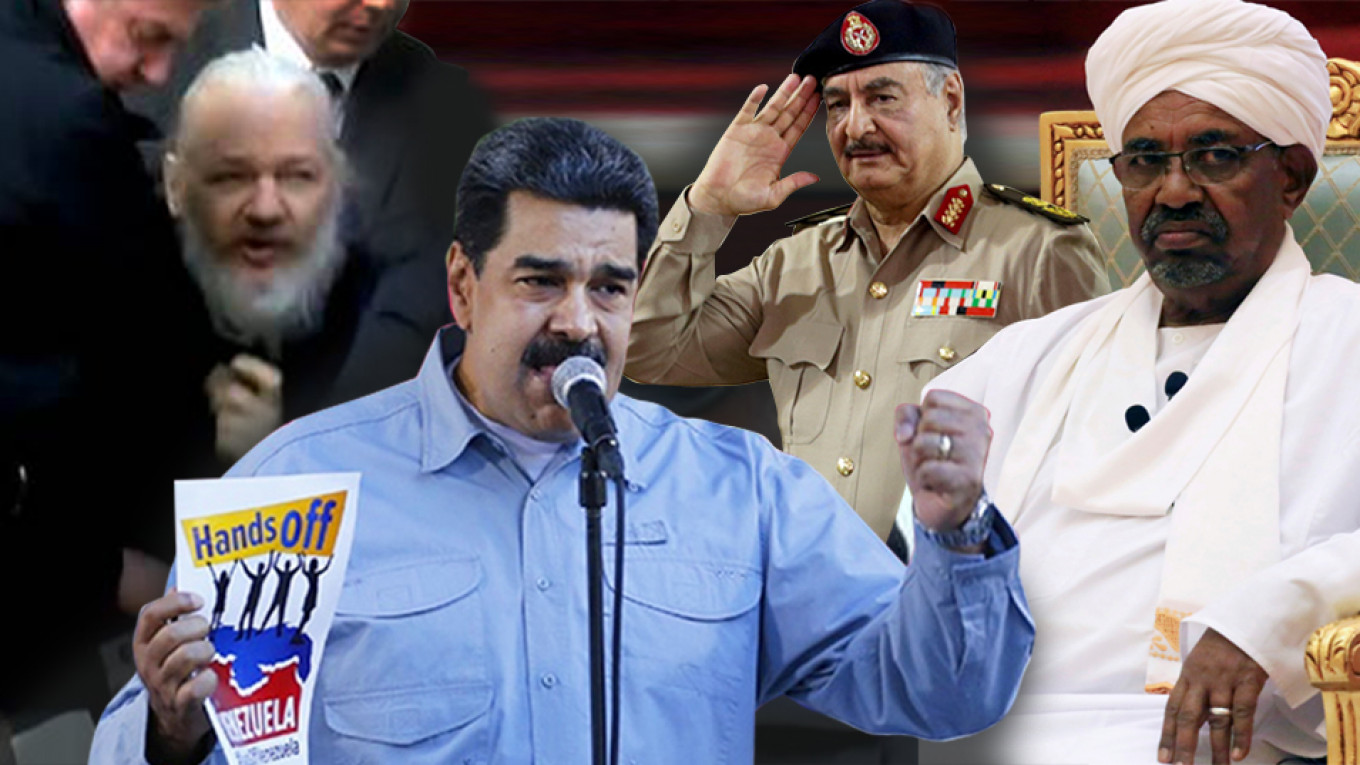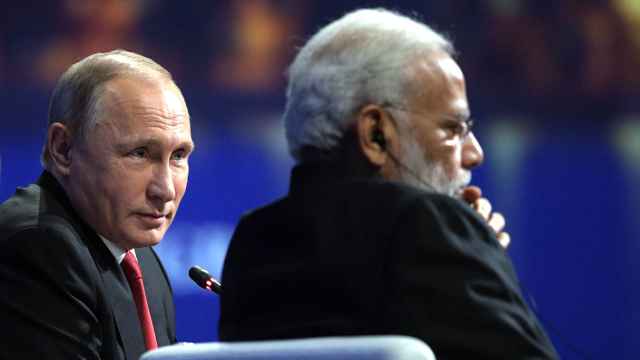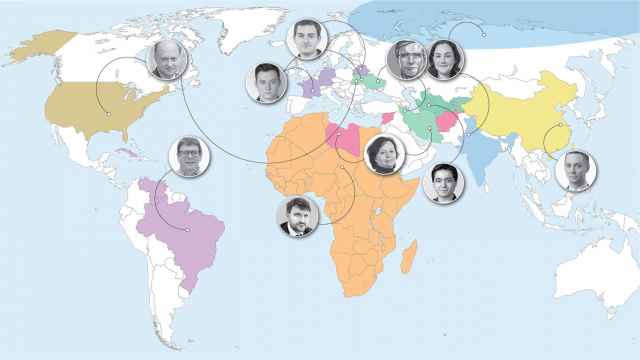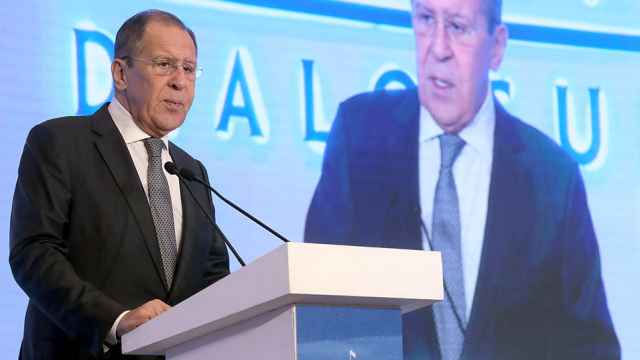Julian Assange is under arrest. Sudan's President Omar al-Bashir has been toppled in a coup in all but name. Maduro's Venezuela is under pressure. Libya's warlord Khalifa Haftar's bid to seize Tripoli faces unexpected resistance.
Russia's allies, proxies and clients appear to be having a bad week, but the truth is that the Kremlin can afford to be sanguine.
Central to its policies in what we could call the “far, far abroad”, those nations beyond its immediate geopolitical interests, is a calculation that it need not back winners, just avoid losers.
What, after all, is Moscow's goal? To create a new empire of the misfits and malcontents kicking against the international order would be expensive and ultimately unsustainable.
Given a chance, in the end, yesterday's pariahs can become today's Western allies or at best regional frenemy-competitors (such as Iran) once they pass a certain threshold of survival and strength.
Besides, the days when empire meant profit are essentially long gone. Empire is a game for states with deep pockets and long-term ambitions. Vladimir Putin lacks the resources to spend with the profligacy of the old Soviet Union, nor the patience of a China.
In any case, he wants the respect, or at least grudging acquiescence of the U.S. and the rest of the West, not the conditional thanks of a sequence of strongmen and demagogues, typically here today and gone tomorrow, their affections at best rented by the day.
Rather, part of the Kremlin's strategy to assert its claim to great power status — or more precisely to get the West to acknowledge this — is to be in the game, to inject itself into a range of theatres that are already or may become significant for the West.
That way, the West will have to talk to Moscow, maybe even cut deals with it. After all, along with a sphere of influence and an “exceptionalist” claim to be able to ignore international rules and norms, a central element of Putin's notion of what makes a great power is that it must be involved in any and all significant global issues, regardless of whether its direct interests appear to be involved.
As Leonid Bershidsky has observed in these pages, this typically means taking a gamble on gamblers, ones who often flee and fail. But this is not really a problem for Moscow, as these pariahs and outsiders tend also to be bold, busy, and biddable. They are active, knowing that they start as underdogs, and for the moment, at least, they are willing to be bought for whatever little Moscow wants to spend on them. This is, after all, empire building on the cheap, seeking not long-term control, just short-term mischief.
Julian Assange, for example, knowingly or not turned Wikileaks into an outlet of choice for the dissemination of disinformation by the Russians, or simply the release of genuine information that others wanted to keep secret. He may now be in detention, but his followers and sympathizers, for whom however disreputable a figure he may personally be, he has become a symbol of information freedom, will continue to argue his case.
The Americans appear to be quite subtle in their prosecution of him, trying to separate him from the legitimate media outlets which printed his leaks, but it is unlikely that this which do much to calm the inevitable outrage. Assange may long have been a marginal figure in reality, but his case will still help stir up the kind of toxic divisiveness that Moscow wants to be spread in the West.
In Sudan, Bashir may have fallen, but the initial signs are that under the military's interregnum, much of the regime will survive. The Russian security contractors which were deployed to help bolster Bashir's guard do not appear to have been expelled, and there are good relations between Moscow and the Sudanese military, who have begun buying Russian weapons.
The Kremlin is not sentimental, and unless the Sudanese see a much better deal elsewhere — and neither the Europeans nor the Americans seem that interested at the moment — they are unlikely to change orientation.
This is, after all, empire building on the cheap, seeking not long-term control, just short-term mischief.
In Venezuela, the dispatch of perhaps 300 personnel, a mix of mercenaries from the Wagner Group, soldiers, and cybersecurity specialists, led to Donald Trump taking an unusually hard line, saying “Russia has to get out.” But Russia did not get out, forcing Washington to have to regroup and decide how to proceed. This is a very small commitment for Moscow, yet with a potentially major payout.
If the Maduro regime falls — and there is a distinct limit to how far Putin is likely to go to prevent this — then no one can be surprised, and at least the Russians proved that they did not abandon their ally. On the other hand, if the regime survives, then regardless of whether the Russian role was at all pivotal, the Kremlin will be able to claim that it faced down the Americans, in their own backyard.
Whether or not Haftar makes further gains in Libya, likewise Moscow still stands to gain simply by being involved. The Southern Europeans are primarily interested in stability and the cooperation of the Libyans in intercepting flows of migrants, and if the Russians can claim to wield influence on Haftar, then that becomes a point of negotiation.
Indeed, if he fails in his bid, he may be all the more desperate for support, and this all the more open to Russian assistance, however token.
This is a strategy of selective and transactional engagement. A few hundred mercenaries here, a U.N. General Assembly veto there, perhaps some assistance in election management in places such as the Democratic Republic of Congo, a flag-flying naval deployment to Cuba. None of these cost so much that Moscow will suffer much in political or economic terms if they turn out to be wasted. Indeed, often they are self-financing, paid for by mineral concessions and cash on the nail.
The key point is that none of them truly matter in their own right. This is not really an empire, it is building positions and leverage for the deals that really matter: with the West. This is not a game of geopolitical Risk, but Monopoly: everything is ultimately for sale, in the name of winning.
A Message from The Moscow Times:
Dear readers,
We are facing unprecedented challenges. Russia's Prosecutor General's Office has designated The Moscow Times as an "undesirable" organization, criminalizing our work and putting our staff at risk of prosecution. This follows our earlier unjust labeling as a "foreign agent."
These actions are direct attempts to silence independent journalism in Russia. The authorities claim our work "discredits the decisions of the Russian leadership." We see things differently: we strive to provide accurate, unbiased reporting on Russia.
We, the journalists of The Moscow Times, refuse to be silenced. But to continue our work, we need your help.
Your support, no matter how small, makes a world of difference. If you can, please support us monthly starting from just $2. It's quick to set up, and every contribution makes a significant impact.
By supporting The Moscow Times, you're defending open, independent journalism in the face of repression. Thank you for standing with us.
Remind me later.








